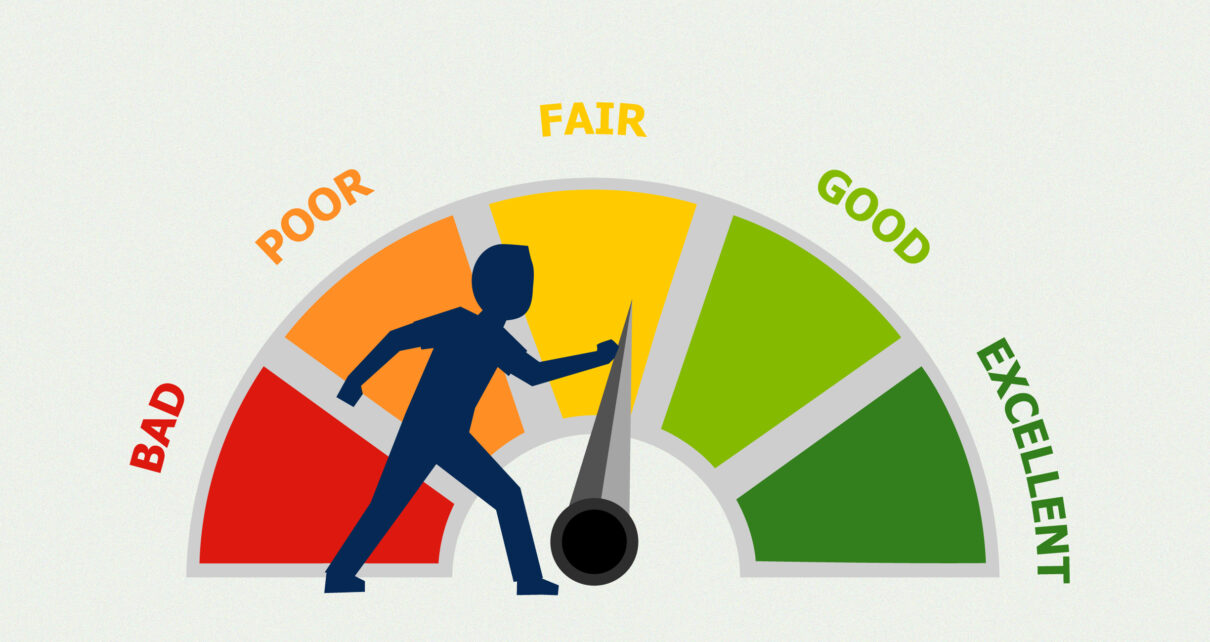Your credit score is a single three-digit number tied to your name and financial history. This number alone can affect your ability to buy a home, start a business, or get the best interest rate on loans. While not always on the forefront of your mind, your credit score is very important in a variety of situations.
As vital as it is, a credit score can be easily damaged. If you miss a couple of payments, you can see a significant drop that may seem difficult to recover from. A long history of poor financial habits will dig a still deeper hole to pull yourself out of.
But even if your credit score has hit rock bottom, hope is not entirely lost. There are ways that you can repair and improve your credit score if you start today. It won’t necessarily be quick and easy, but here are some ways you can start to regain control of your finances:
1. Start With Small Repairs
You can’t add 100 points to your credit score overnight. If you really want to get it under control, you’ll have to start with some micromanagement. Small actions and adjustments won’t seem like a lot at first. However, these efforts will combine together as effective damage control to help get your credit score back on track.
The largest part of your credit score calculation is your payment history. If you’re making your payments on time, your score will go up. But it’s tough to establish a sufficient payment history if you can’t qualify for things like loans and credit cards in the first place.
In situations such as these, consider applying for a credit builder card. This card functions much like a traditional credit card, except it’s backed by an initial deposit or funds transfer from you. That lowers the risk the lender takes on, which is why your application for one is likely to be approved. You can use this card sparingly to start a good track record of timely payments and improve your credit history.
2. Keep Your Utilization Rate Low
If you haven’t heard of credit utilization, now is the perfect time to learn. Simply put, this is the percentage of your total credit that is in use at any one time. For example, if you have a credit limit of $1,000 and a balance of $100, your credit utilization rate is 10%.
Credit utilization accounts for 30% of your credit score, so keeping it in check is critical to raising your score. Experts advise maintaining a credit utilization ratio of 30% or less — the lower, the better. This demonstrates to creditors that you don’t rely too much on credit to meet your normal financial obligations.
Maxing out a credit card might not seem so bad if you’re always paying it off, but that’s not necessarily true. Depending on the timing of your payments, the credit bureaus may still see that 100% credit utilization rate, and it will harm your score. At the very least, it will make your recovery process a lot slower. So do yourself a favor and strive to stay below that 30% benchmark all month long.
3. Make a Case for Yourself
There may be an item or two in your credit history that is falsely affecting your credit score. You won’t have any idea this is happening if you’re not regularly checking your reports. If you do come across a discrepancy in credit reporting, you can dispute it to have it removed from your records.
The most common example of this is credit card fraud. When your card gets used without your consent, you can dispute the charge and have it removed. Or you may come across credit card applications you didn’t make or late payments reported in error.
Less common cases include payment information from someone with a similar name being added to your report. If their poor habits were damaging your score, getting this information removed can help improve it.
4. Piggyback on Someone Else’s Good Credit
If you have a trusted friend or family member with good credit, they may be able to lend you a hand. By becoming an authorized user on their credit card, you can benefit from their good financial habits. This will contribute to your own credit history, helping boost it a little.
This is not something that you should jump into without serious thought, however. It’s understandable that others might be hesitant to add you as a user on their card. After all, they remain responsible for any charges you make. Likewise, you could be in danger if they decide to go on a spending spree and tank their own credit score.
Start by asking people you really trust and who trust you in return. For example, if your spouse has great credit, look into getting a joint credit card or taking out a small loan together. With teamwork, the two of you together can help get your credit score up.
Remember that boosting your credit is not an overnight project. But diligent and consistent efforts are what will get you to where you need to be.

